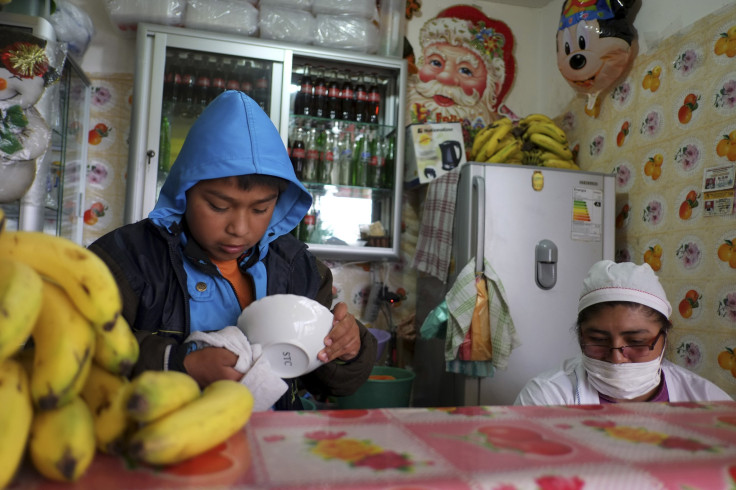Bolivia Allows 10-Year-Olds To Work Legally To Reduce Poverty

Children as young as ten can now legally work in Bolivia thanks to a change in the law on child labour, which was signed in by President Evo Morales in an attempt to reduce poverty in the country.
A 1999 law in the country set the minimum working age at 14. However, the rule drew criticism because people in Bolivia argue children must work from an early age out of necessity.
In deference to requests certain exceptions have been built into the existing employment age threshold.
When specific criteria are met, children in Bolivia can now start working "for others from age 12, which is allowed by international conventions, and self-employment from age 10".
According to Senator Adolfo Mendoza, children must decide voluntarily that they want to work. Guardian or parental consent is also required as well as the permission from the public ombudsman.
"The request is then filed with the Labour Ministry," Mendoza told AFP.
The legislation requires employers to guarantee children's safety in the workplace and prevent their exploitation.
Deputy Javier Zavaleta, who sponsored the new law, said: "Our goal is to eliminate child labour by 2020. While it is ambitious, it is possible."
Political scientist Manfred Liebel, who is also a consultant for Bolivia's Union of Child and Adolescent Workers (UNATSBO), also supported the new law.
He said in an interview in June that "It doesn't make any sense to prohibit child labour.
"Instead, it's important politically to work towards changing the lives of families. They should be able to decide freely and independently whether children contribute to the family income or not."
However, critics argued that the bill will not solve the problem of poverty.
According to Jo Becker, children's rights advocacy director at Human Rights Watch, "Lowering the minimum age of employment is counterproductive and out of step with the rest of the world."
A 2012 report by International Labour Organisation (ILO) said there are 2.3 million children in Bolivia aged five to 14, of whom about 648,600 work.
Bolivia is one of the poorest country in Latin America, according to Index Mundi. Its economy is undermined by lack of foreign investment and growing conflict among different social groups.











